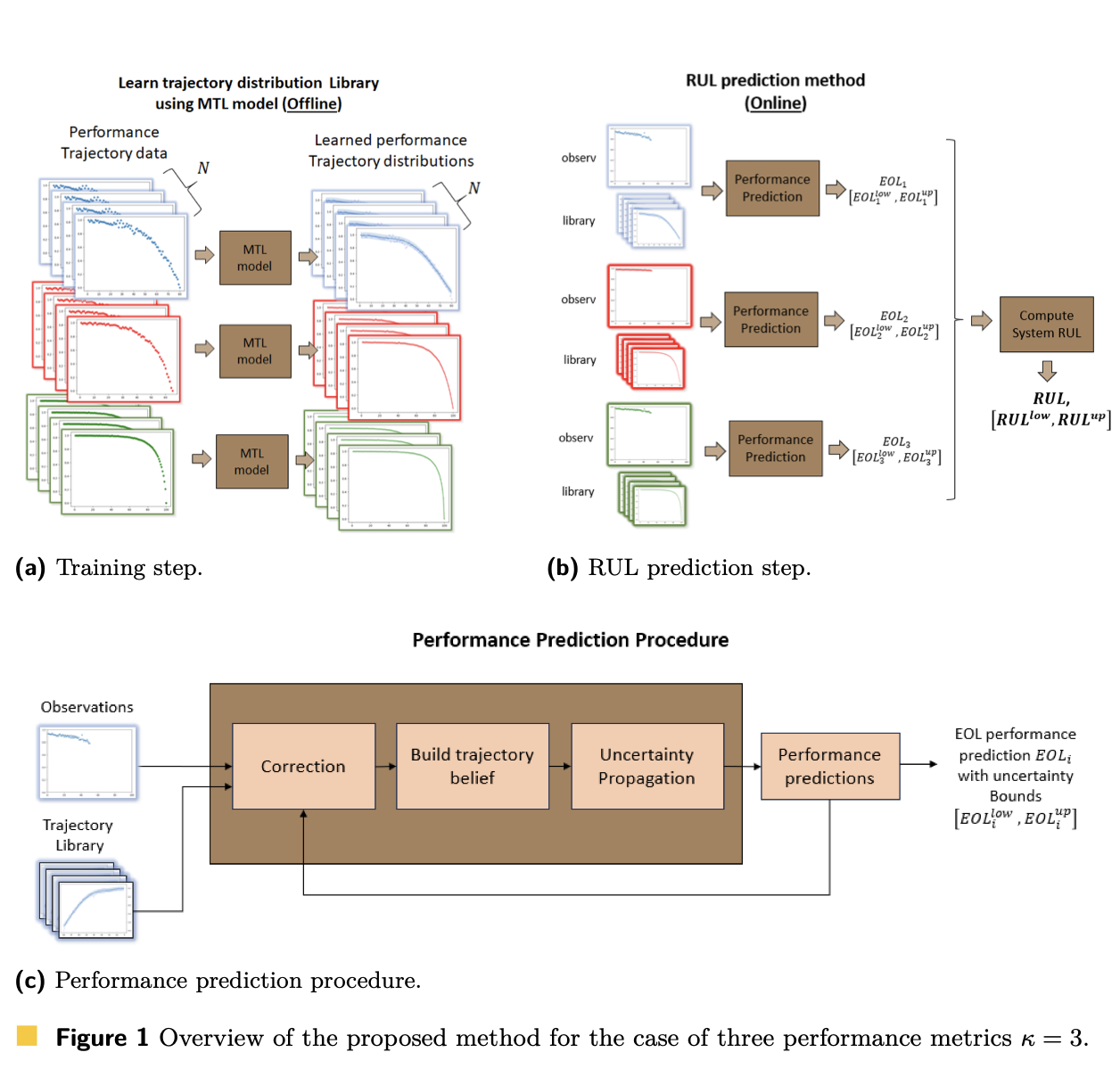Diaz-Gonzalez, Abel; Coursey, Austin; Quinones-Grueiro, Marcos; Kulkarni, Chetan S.; Biswas, Gautam. “Data-Driven RUL Prediction Using Performance Metrics.” OpenAccess Series in Informatics, vol. 125, 2024, 21, https://doi.org/10.4230/OASIcs.DX.2024.21.
Prognostics is the study of how things wear out or degrade over time and predicting when they might break or fail. In this work, we propose a new method to predict how much longer a system will last (its remaining useful life, or RUL) using only data about how it’s being used, without needing detailed knowledge of the system or a precise model of how it works. Instead of relying on expert knowledge or an exact system model, we use data that tracks the system’s performance and how it changes over time.
The method we propose is inspired by traditional models but is purely data-driven. It uses a special type of machine learning model to learn both the general pattern of how systems typically wear out and how individual systems degrade over time. We apply this approach to performance data that signals when the system is about to fail, building a library of different performance patterns based on various operating conditions. This library helps us predict when a system might fail by continuously updating its performance data and estimating when it will reach the end of its useful life.
We tested our method on two large sets of data and found that it performed well in predicting how long the systems would last and in estimating the uncertainty around those predictions. Overall, our approach shows that deep learning models can be an effective way to predict the remaining lifespan of systems that are all similar in design but might wear out at different rates.
